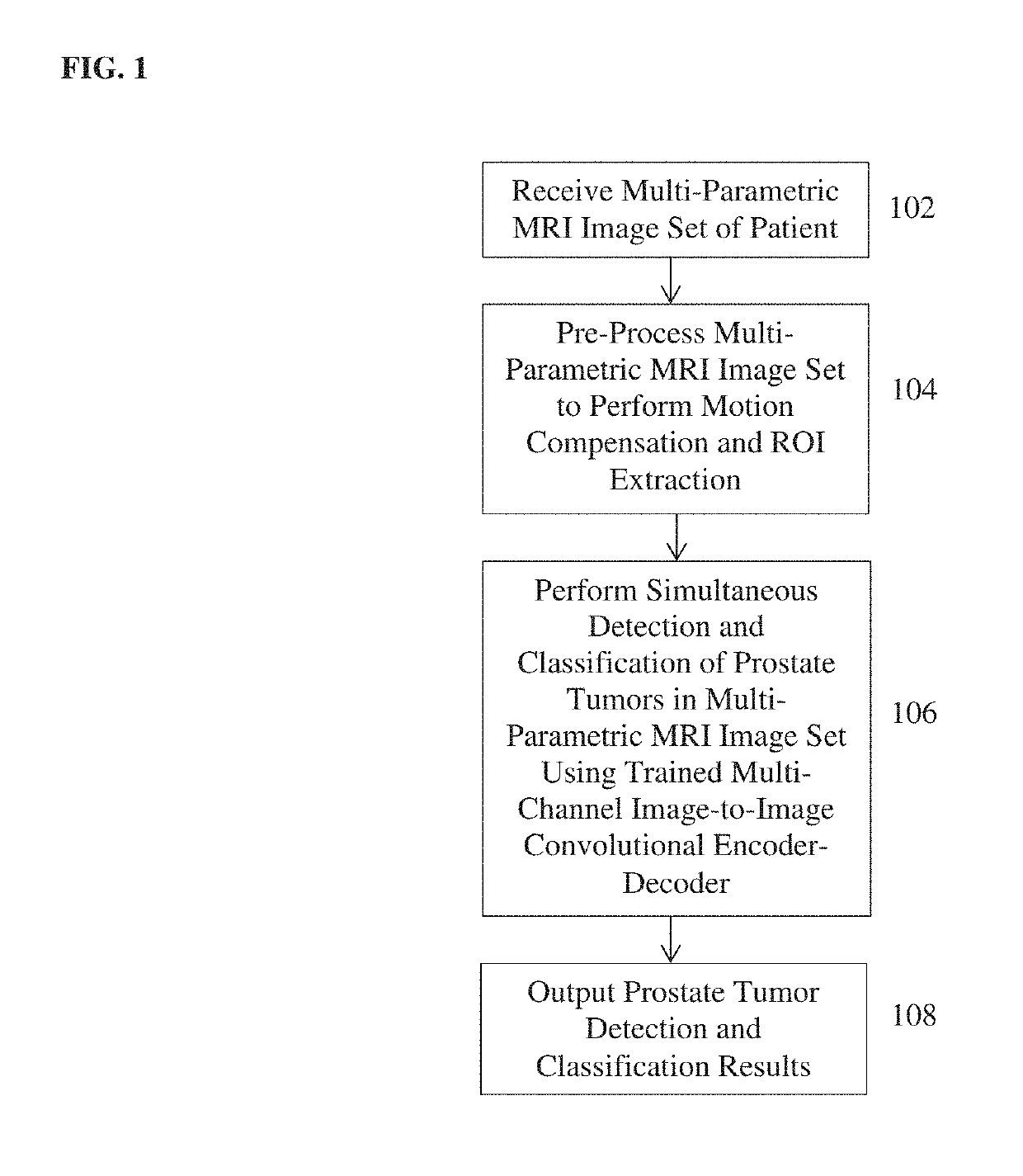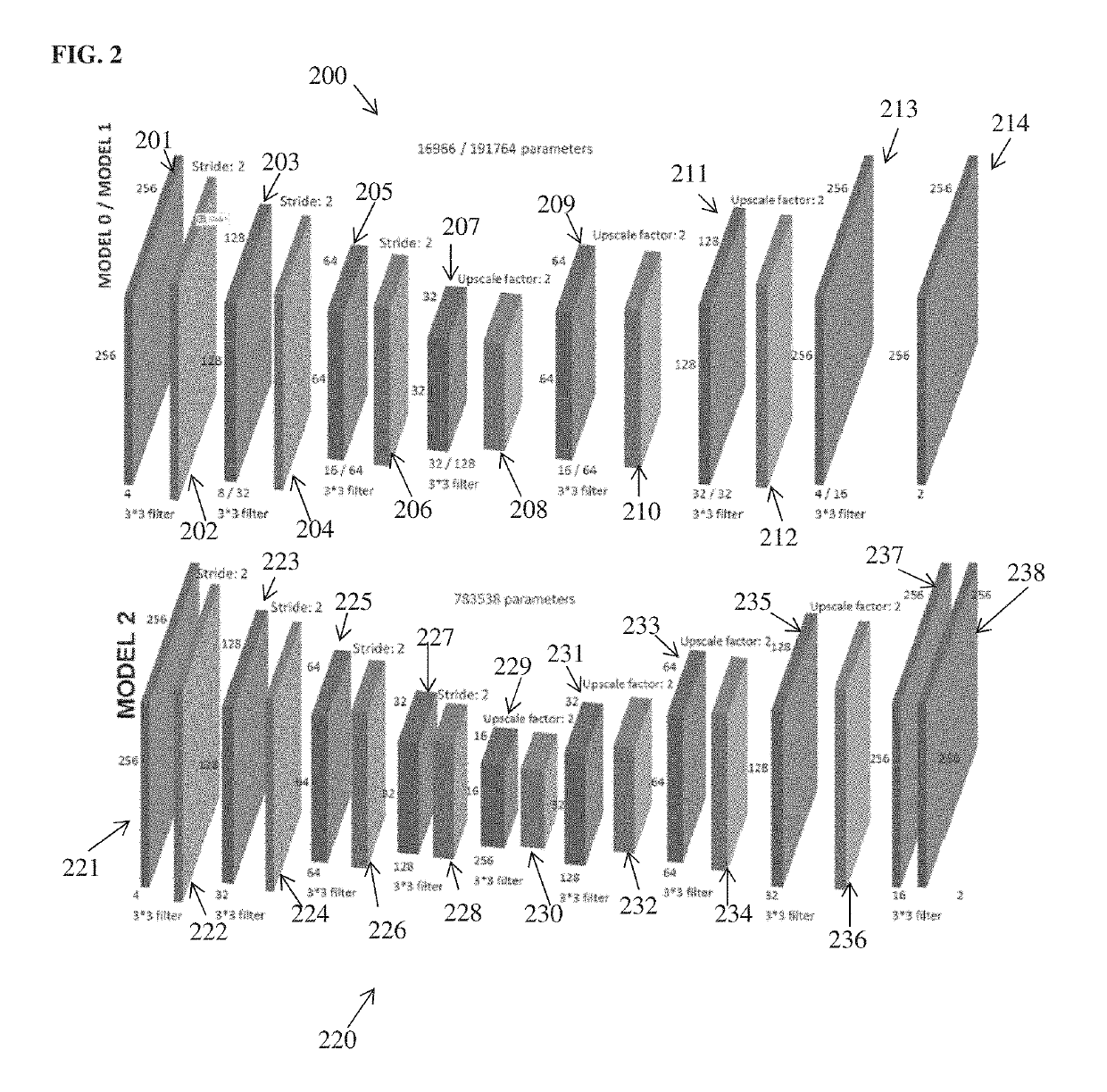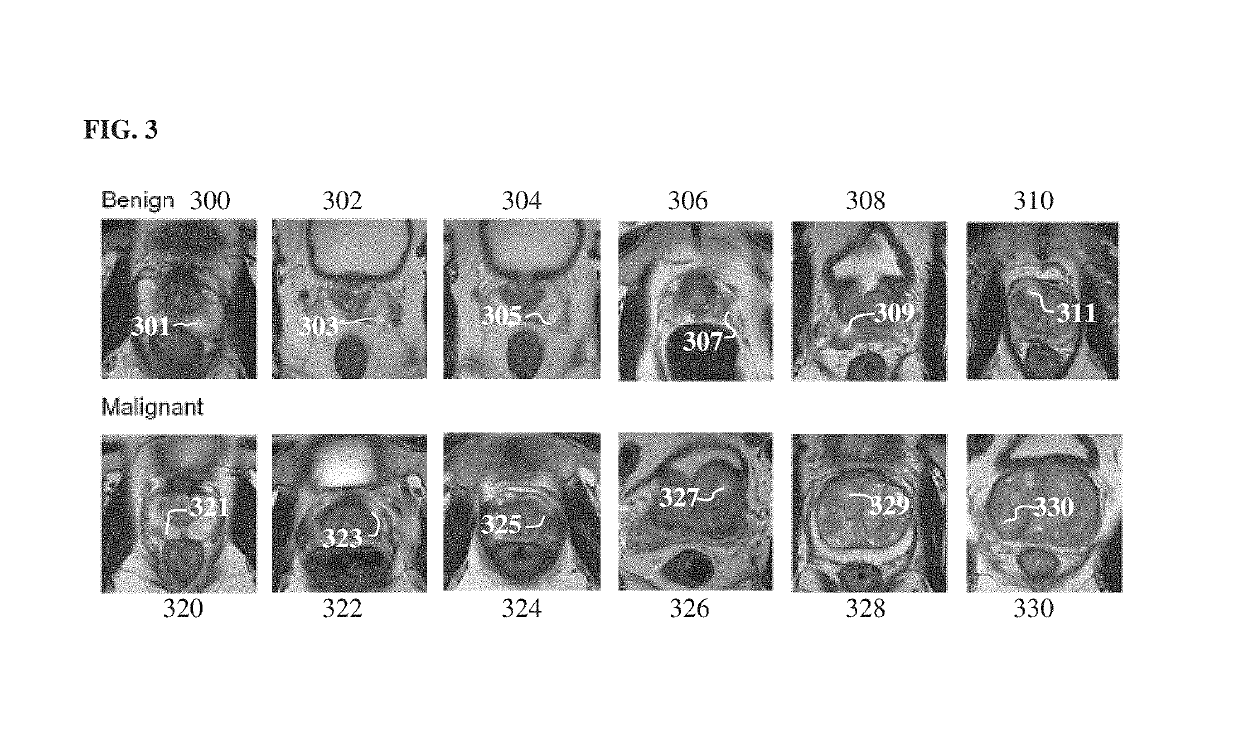Deep convolutional encoder-decoder for prostate cancer detection and classification
a deep convolutional encoder and encoder technology, applied in the field of automatic detection and classification of prostate cancer in medical images, can solve the problems of difficult detection of subtle and collective signatures of cancerous lesion expressed within multi-parametric mr images, and tedious manual reading of multi-parametric mr images, which can be as many as eight image channels, and achieve the effect of improving the accuracy of manual reading
- Summary
- Abstract
- Description
- Claims
- Application Information
AI Technical Summary
Problems solved by technology
Method used
Image
Examples
Embodiment Construction
[0016]The present invention relates to a method and system for automated computer-based detection and classification of prostate tumors in multi-parametric magnetic resonance (MR) images. Embodiments of the present invention are described herein to give a visual understanding of the method for automated detection and classification of prostate tumors. A digital image is often composed of digital representations of one or more objects (or shapes). The digital representation of an object is often described herein in terms of identifying and manipulating the objects. Such manipulations are virtual manipulations accomplished in the memory or other circuitry / hardware of a computer system. Accordingly, is to be understood that embodiments of the present invention may be performed within a computer system using data stored within the computer system.
[0017]Various techniques have been proposed to provide an automated solution to detection and classification of prostate cancer using multi-pa...
PUM
 Login to View More
Login to View More Abstract
Description
Claims
Application Information
 Login to View More
Login to View More - R&D
- Intellectual Property
- Life Sciences
- Materials
- Tech Scout
- Unparalleled Data Quality
- Higher Quality Content
- 60% Fewer Hallucinations
Browse by: Latest US Patents, China's latest patents, Technical Efficacy Thesaurus, Application Domain, Technology Topic, Popular Technical Reports.
© 2025 PatSnap. All rights reserved.Legal|Privacy policy|Modern Slavery Act Transparency Statement|Sitemap|About US| Contact US: help@patsnap.com



